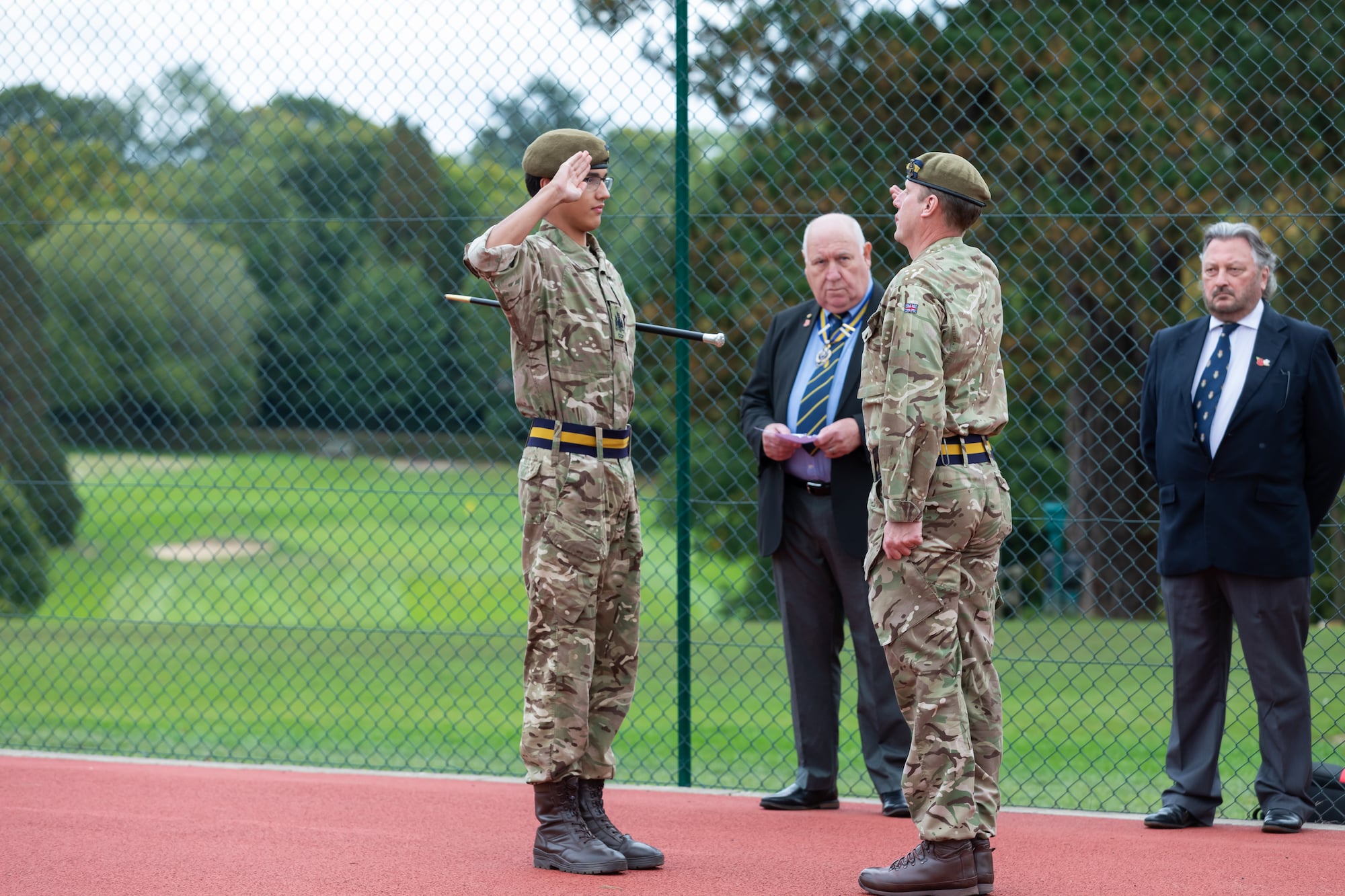This year’s War Studies Society lecture was delivered by Major Piers Ashfield DSO, Grenadier Guards. It was his time as a platoon and company commander on four tours of duty in Afghanistan that was the focus of his address.
During this period, the British Army began to be portrayed at home as victims. Yet, as he put it, “We were not victims. This is a volunteer army. We were there to fight the enemy, and we all understood the risks and took them head on.” At an early stage of his most recent tour, operating from an exposed outpost, his company was “fourteen-nil down against the Taleban” in casualty terms. Morale was flagging. He gathered his men around him. He told them that there were plenty of cushy rear echelon jobs going, if they wanted out. Not a single one chose to leave. He showed a picture of a legless soldier being presented a medal within the paraded ranks of his unit. “That man,” he said, “does not consider himself a victim.” They heard a lot about the ‘tragedy’ of casualties; yet ‘nobility’ is the more apt term. The British Army’s morale is unbreakable and high.
was flagging. He gathered his men around him. He told them that there were plenty of cushy rear echelon jobs going, if they wanted out. Not a single one chose to leave. He showed a picture of a legless soldier being presented a medal within the paraded ranks of his unit. “That man,” he said, “does not consider himself a victim.” They heard a lot about the ‘tragedy’ of casualties; yet ‘nobility’ is the more apt term. The British Army’s morale is unbreakable and high.
There was much on the subtlety and responsibility of military command. The abidingly close, almost paternal relationship an officer has with his men was clear to see. On numerous occasions, he had held his own men bleeding in his arms before they went onto the casevac helicopters. Desperately hungry after days under fire without resupply, in the cover of a ditch, one of his guardsmen somehow produced a mars bar and threw it down in front of him. “Eat it sir.” He refused point blank. The soldier refused to eat it in turn. Eventually Major Ashfield had one small bite, then threw it down before the guardsman, who wolfed down the rest. Such an anecdote speaks volumes about the relationship of leadership, service and respect that exists between officers and soldiers. A certain correct distance rightly remains, but it is a far cry from the stereotypes of aloof pomposity and subservience that somehow still endure.
There were some very probing and intelligent questions from pupils at the end. ‘Has the ability of the British Army to be sent to war been damaged?’ asked Dan Plewman. In terms of its morale, willingness and skill, the answer is emphatically no: “We have a seasoned Army ready for the challenges of the future. We learned so much from Afghanistan, we could not have missed out.” ‘Had he done anything he regretted?’ asked Rob Harrison. He paused briefly, before advising, “Don’t dwell on regrets too much.” He always tried – and always instructed more junior officers – to take action that is ethically right. “Do what is morally right, according to the Christian values you have, and you will not have regrets that haunt you.” That summed up his talk: war is a human matter, fought and suffered by humans.
Tom Leeke
Back to all news











